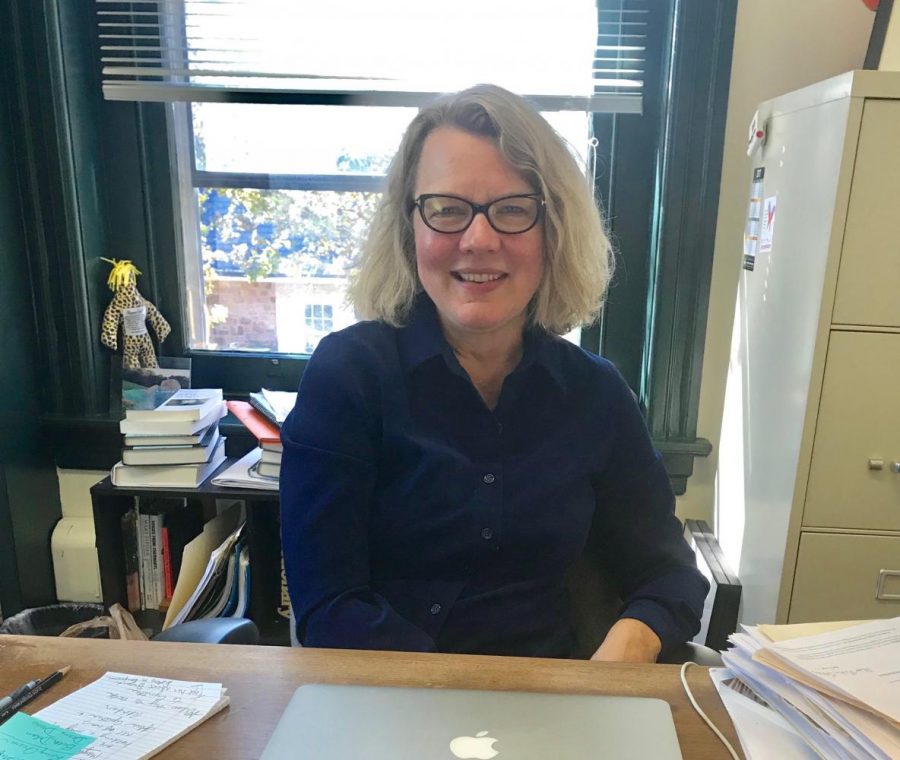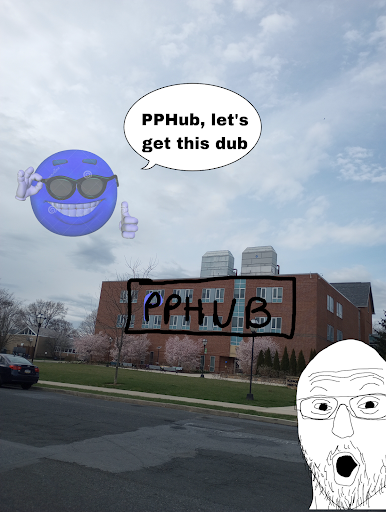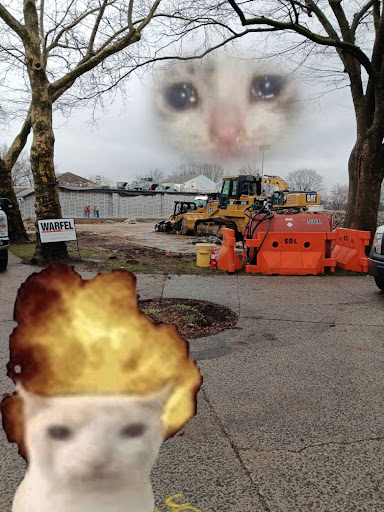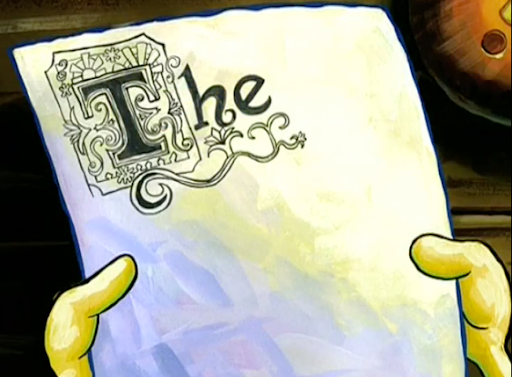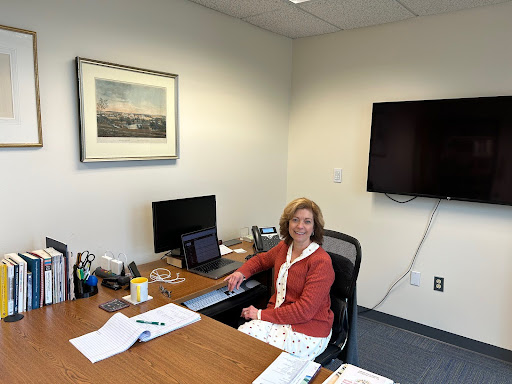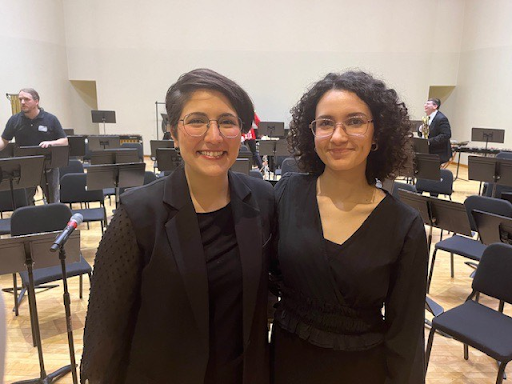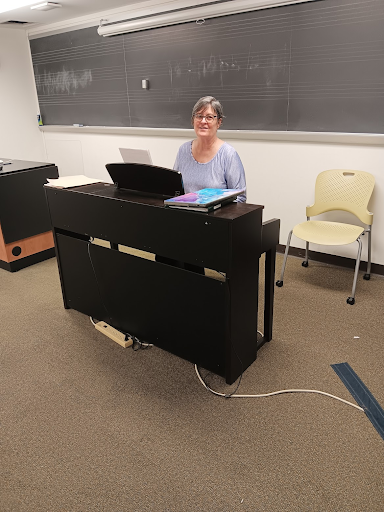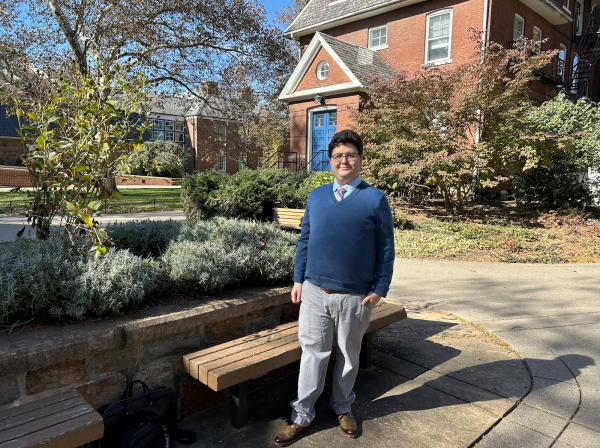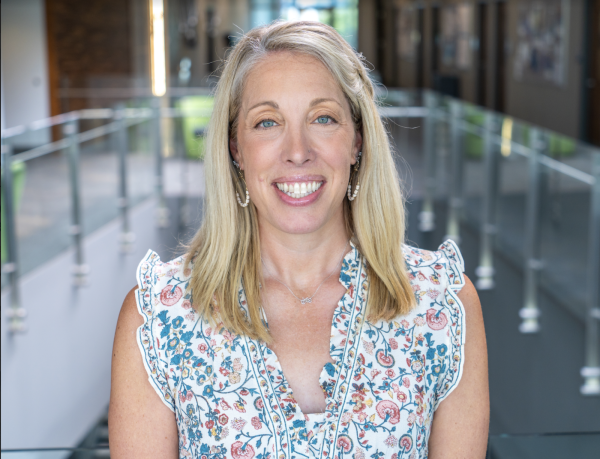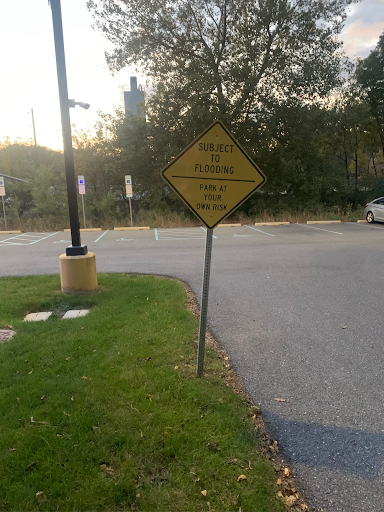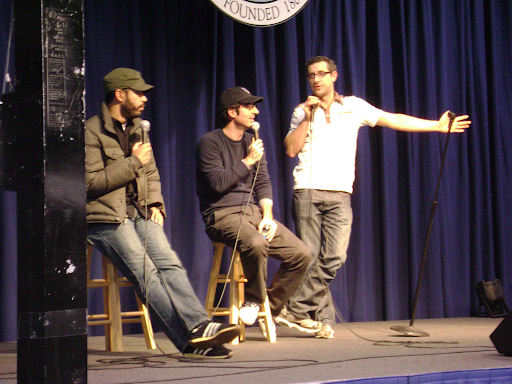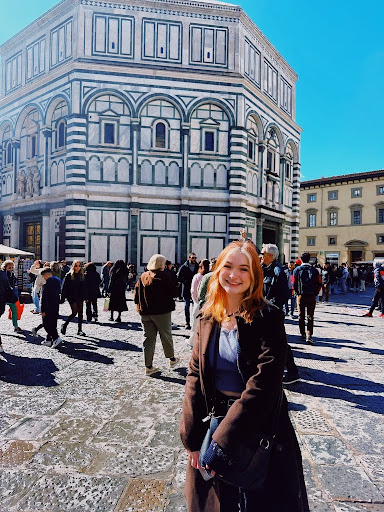Professor Spotlight: Joyce Hinnefeld
Dr. Joyce Hinnefeld is department chair and professor of English at Moravian College. She received her B.A. at Hanover College (Indiana), her M.A. at Northwestern University, and her Ph.D. at the State University of New York at Albany. She specializes in creative writing, including fiction, nonfiction, contemporary fiction, and poetry.
What inspired you to go into your field of study?
I got serious about creative writing when I took a course in college; I’d loved literature up until then, but hadn’t really thought of myself as a writer. That course was a turning point for me, but the literature courses I took as an undergraduate, and then the literature and literary theory courses that I took in graduate school (in both M.A. and Ph.D. programs) deepened my understanding and my pleasure, and also my desire, to write.
What research are you currently working on?
I’ve recently completed a draft of a novel, tentatively titled “Orphans and Endlings.” It explores certain relationships of a young woman growing up in the rural Midwest during our current era, and projects into the future, around ten years from now, to a point in her life when she’s coming to terms with some unsettling things that happened in her own life, and also the lives of her parents, years before. Some elements of this novel go back to my first published novel, “In Hovering Flight” (birds are significant, for instance—particularly endangered whooping cranes). But it also explores things like American gun culture and the opioid crisis, and it’s set in the rural Midwestern world I grew up in—a setting I haven’t revisited since some of my first short stories.
What do you think is the most recent important development in your field of study?
That’s a tough one! I think there are great discussions happening now about how the most vivid and compelling contemporary American fiction often incorporates both literary and the popular traditions, with aspects of horror, fantasy, mystery, romance, etc., all showing up in a more literary landscape. I also think contemporary writers are doing things that make all the old arguments about canonical literature vs. “minority literature” or “women’s literature” look outdated, almost quaint. I’m thinking of novels like Colson Whitehead’s “The Underground Railroad” here, or Carmen Machado’s wild and wonderful story collection, “Her Body and Other Parties.”
What job would you have if you couldn’t be a professor, regardless of salary and job outcome? Why?
I’ve been asked this question before, and what I said then was either a forest ranger or an art historian—the former because I’d be outdoors more, the latter because I love art and wish I were more knowledgeable about it.
What do you know now that you wished you knew when you were in college?
That it’s okay to speak up, sometimes pretty loudly. That it’s actually important to do so, especially as a woman.
What is your biggest student pet peeve?
I really do understand students’ many anxieties, but I so wish they could relax a bit, read for pleasure and to learn new things, not to get so hung up on “what will be on the test” and that sort of thing.
What was the last streaming show that you binge-watched or the last good book that you read?
I watch and re-watch old episodes of shows like “30 Rock,” “Parks and Recreation,” and “The Office” with my daughter all the time; that’s one big guilty pleasure. I’ll confess that I binge-watched “Big Pretty Lies”; I’m also a fan of “Transparent,” and I’ve been enjoying two other relatively new streaming shows recently: Tig Notaro’s “One Mississippi” and Michaela Coel’s “Chewing Gum.”
I’ve read so many good books recently; I’m afraid I can’t identify just one “last good” one. Right now I’m reading Tracy K. Smith’s poetry collection “Life on Mars,” Jessmyn Ward’s novel “Sing, Unburied, Sing,” and Carmen Machado’s story collection “Her Body and Other Parties.”
What is something interesting about you that most of people don’t know?
I’m guessing most people don’t know that I’m a Quaker, largely because of the Quakers’ longstanding commitment to social justice, and because that’s the only spiritual community where I’ve felt at home.
What’s your spirit animal and why?
I’ll say cranes (sandhill cranes to some extent, but particularly whooping cranes—because of their devotion to their mates and their young, their incredible resilience, and also their stubbornness).
Aside from teaching, what are some of your hobbies? What is a typical weekend like for you?
I think I used to have hobbies, once upon a time . . . back before I was a department chair!
I don’t play as much as I’d like, but I do play tennis sometimes. Same for yoga. Of course I read a lot, and I also like biking and hiking.


